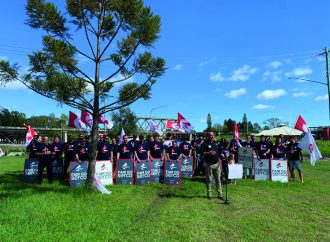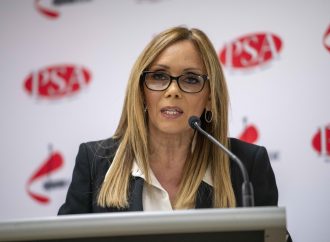The system needs an overhaul.
Since the Liberal National Government’s 2012 cuts to workers’ compensation, unions have been able to claw back marginal improvements to benefits and the processes used to assess workers’ compensation liability. However, the system is structurally broken.
In 2015, the former WorkCover Authority, Motor Accidents Authority and Dust Diseases Board were broken up and merged into icare, which manages the money and service provision for the eight or so insurance schemes the government manages.
Icare has experienced a raft of controversial management issues from suspect procurement, proliferation of Senior Executive Service (SES) roles, increasing management fees and expanding contracts.
But perhaps what is worse for our members is the blind eye given to the improper declining claims from our members in Corrective Services. This led to a news story on Four Corners and the payment of what is possibly millions of dollars for ruining workers’ mental health through mismanagement of claims by their agents.
Both the State Insurance Regulatory Authority (SIRA) and SafeWork management have proven themselves time and time again in multiple inquiries to be unwilling to pursue the role of a regulator with teeth.
NSW Work Health and Safety Minister Sophie Cotsis and the Minns Government have started on the right foot. When confronted with a growing deficit at icare for the workers’ compensation scheme, instead of doing what the previous government did and cut benefits then six months later reduce premiums, it actually took some hard medicine and increased premiums for employers.
The Minister has also moved to make icare more accountable to those it is meant to serve by putting representatives of employers and workers on its board. She has also demanded icare establish an advisory council of injured workers.
The next steps include requiring amending icare’s objectives to maximise benefits for injured workers whilst also maintaining financial viability of the schemes under management.
Troy Wright, PSA CPSU NSW Assistant General Secretary, said, “The big issue at all of the compensation agencies is the one that the PSA has been talking about for three decades: psychological health. This is the biggest growing cost of the Treasury Managed Fund (TMF). Yet when we asked the previous government and SafeWork about what they were doing to implement their own Mentally Healthy Workplaces policy to prevent injuries, they said they would effectively leave it to the agencies. This is simply not good enough.
“We also see employers make up every excuse under the sun to prevent injured workers from returning to work. We have seen one employer use improper tactics of ‘starve them out’, denying workers’ compensation in order to force workers back to work injured. We need to be able to seek orders from a tribunal such as the Industrial Relations Commission to encourage employers to take injured workers back to work.
“We need a SafeWork Authority with teeth that workers and Health and Safety Representatives can rely on to make workplaces safer. As stated by the Audit Office in 2010, placing targets of injury prevention, and return to work in SES contracts really makes prevention and return to work more effective. “Part of restoring the SafeWork
Authority is to have its own tripartite Council, and an independent office to review its decisions, whilst improving protections for the SafeWork Inspectors who appear to be caught in a career conundrum every time they do their job of making workplaces safer. Also filling all of the dozens of vacant Inspector roles that were left unfilled by the previous government, so that they can get out into workplaces helping reduce the toll on workers and their families.”
Nicole Jess, PSA CPSU NSW President said, “ We were the ones turning up to work during COVID; our Child Protection Workers, our School Support Staff, our Youth Justice and Prison Officers, our Land Managers. Yet the first thing the previous government did when they returned to work was to try and remove compensation for people getting COVID at work”
Ms Jess, who is still a working Prison Officer added, “Our members do not often have a choice to walk away from danger. We need a system that supports a worker’s recovery and gets them back to work, and does not kick them onto the Centrelink queues and Medicare when they are still recovering.
“For many members with a workers’ compensation claim I speak to, I realise we treat our worst inmates in the gaols with more fairness and compassion than they are treated by their employers and the insurance agents who often treat these workers like criminals”
Shay Deguara, CPSU National Industrial Officer said, “We need to rebuild the benefits the scheme offers, so it supports us.
“It was with great disappointment that this week we were advised that icare is still peddling out the myth that workers are rewarded by getting injured at work at Section 66: A Worker’s Keys to the City, which was a seminar by icare lawyers about inventive methods for workers to increase their assessment.
“This is insulting to injured workers, the legal and medical professionals who support injured them and the members of the Personal Injury Commission. It is more insulting in that workers who claim for permanent impairment must reach a 10 per cent impairment level for physical and 15 per cent for psychological permanent impairment one-off lump sum payment.
Yet most of these workers will experience a career of medical retirement, under- or unemployment for a lump sum payment that is often less than a year’s salary.
“Regardless of the party of the government, we have seen the top dogs at the workers’ compensation agencies in all states go for what they believe is the easy option of attacking injured workers, by making it seem like a holiday to get injured at work.
“We saw the attempts in Victoria to cut back on psychological injuries compensation for public servants aborted after significant union pressure. This is a real issue in NSW with TMF psychological claims costing in the hundreds of thousands of dollars often due to the constant disputation, undermining and failures to accept workers back to work for psychological claims.”
Nicole Jess said, “We need to rebuild the benefits scheme in NSW as a matter of urgency, need to rebuild our safety regulator as well with better prevention and return to work capacity for unions to support our members. Importantly we need the right people at the helm (or in the kitchen) to manage the system with compassion, and to employ our members so that they all return home safely at the end of the day.
1 comment


















1 Comment
Simon Argue
18 December 2023, 8:39 amHaving a psychological injury also significantly reduces your ability to function day-to-day.
REPLYWhilst having been diagnosed with C-PTSD, my WPI has been assessed as only 7%, yet on bad days, it can be impossible for me to leave the house, remember to feed myself without prompting, shower, let alone drive, work or socialise.
The impact of psychological injury also extends to colleagues not understanding you, because you are cognitively muddled, so even working from home can be troublesome. I have been told to never return to my substantive employer, nor the building they work in.
I recognise the tables are their for a reason, however there seems to be little understanding of the impact, not just on our work, but on our partners, children and wider family. I strongly believe I am at least 30% less of a person than I was before the injury, yet somehow that is far from reflected in the assessment process